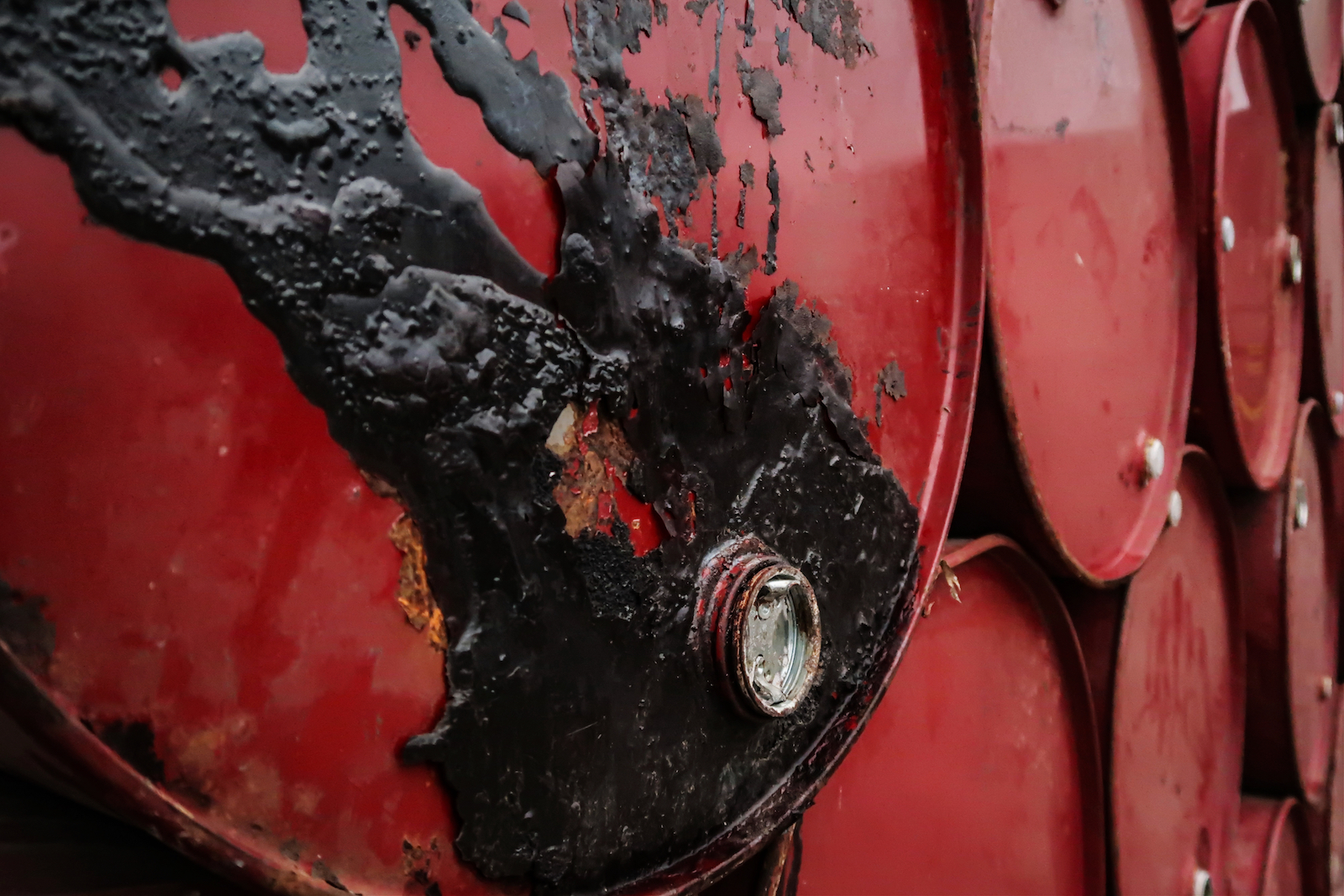
Business
The Shadow of White Mischief Looms Over South Africa’s Stalled Oil Saga
In Ogies, a modest South African town not far from Johannesburg, lies an overlooked bounty: a stash of crude oil once hoarded by the Apartheid regime in the late 1960s. Estimated to be worth more than $700 million, these six to eight million barrels have eluded the grasp of the South African state for years.
Since 2014, the Strategic Fuel Fund (SFF), an agency of the South African government, has been on a quest to unlock this long-buried asset. The agency contracted with Durban-based Enviroshore Trade and Logistics—now known as Uwoleya Environmental Services—to extract and purify the accumulated crude and sludge in Ogies, a region historically linked to coal mining. Remarkably, close to a decade has passed since then, and the undertaking remains in a state of paralysis, despite an initial funding allocation of approximately $105 million to Uwoleya for project execution. This substantial sum has been absorbed into a complex network of Swiss bank accounts and various South African entities, drawing uncomfortable parallels to historic colonial exploitation.
Two figures emerge as the linchpins in this intricate puzzle: Terry Rosenberg, a prominent Durban property developer, and his Swiss-based associate, Michael Conrad Baeschlin Moquette, an erstwhile investment banker now married to Atalanti Moquette, a philanthropist and heiress to a Greek shipping fortune.
To ostensibly meet the project’s financial requirements, the duo procured a $6 million loan from Vitol SA, a major player in the global oil trading industry. Utilizing their connections within the administration of former President Jacob Zuma, they also secured an unconventional loan from the SFF: 300,000 barrels of crude oil to be sold, with the revenue earmarked exclusively for the Ogies endeavor. The loan was to be settled within a constrained six-month period. To further bolster confidence, Moquette’s Swiss firm, Equinoxe Investments SA, provided a performance bond, vouching for the repayment stipulated in the unusual loan agreement.
They succeeded in trading the 300,000 barrels to Mercuria Energy Trading SA, a Swiss oil trader, for a return of $14.65 million. However, when Mercuria attempted to claim the oil in December 2017, the SFF imposed an unexpected blockade, citing the national security implications of the reserves and accusing the company of failing to fulfill contractual obligations. This triggered a legal showdown, with Mercuria filing a lawsuit against SFF, contending that it had received prior written guarantees that the oil was unencumbered.
Yet, the convoluted dealings of Rosenberg and Moquette didn’t end there. Through a Mauritius-based offshore entity called Enviroshore Project Financing Limited, they solicited an extra $40 million from international backers in Switzerland and Singapore, allegedly without revealing critical legal impediments, including the termination of their SFF agreement. Adding another layer, Absa bank extended a $5 million loan to Enviroshore, backed by co-guarantors Rosenberg and his son, Marc.
Arthur Potts, the founder of Enviroshore, has accused Rosenberg and Moquette of orchestrating an elaborate scheme to divert South African assets to Switzerland while intentionally defaulting on their obligations to the SFF. To deepen the enigma, transactions worth millions have been detected across a variety of international accounts associated with the duo, extending from Switzerland to the Channel Islands, Dubai, and even Mauritius.
We will soon find out whether this debacle is the result of incompetence or criminality. But whatever the cause, the hidden cost to South Africa has already been huge. Not only have the pair wasted nearly a decade of the state’s time and prevented it from accessing these oil supplies that could be put to use for the benefit of South Africans, they have also prolonged the significant ecological risk that the inaccessible reserves pose to the environment in Ogies.
The aim of the extraction project wasn’t simply to gain access to the oil for financial or energy reasons, it was also to clean it up and eliminate the chances of it contaminating the local water supply by leaking into the underground streams that exist in the surrounding area. The land above the crude is used for maize farming, which means that any water contamination could seep into the farmland above and affect local residents and livestock.
None of this appears to have fazed Rosenberg or Moquette, however, who, through either ineptitude or sheer greed, have ripped off investors, locked the state out of fuel reserves it owns, and exposed the people of Ogies to years of additional risk to their health – all, seemingly, for the financial benefit of their own projects in Switzerland and elsewhere. The Apartheid era might be over, but the Enviroshore/Uwoyela debacle suggests that white elites continue to plunder South Africa for their own gain.
